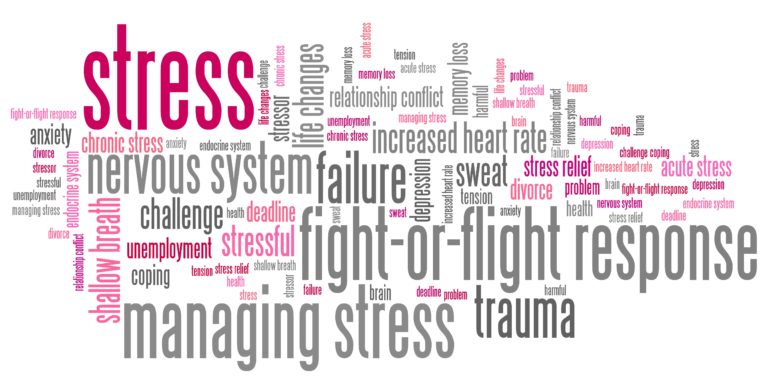Trauma can have a profound negative impact on a person’s emotional well-being and overall quality of life. Posttraumatic stress disorder (PTSD) is the mental health condition that is most closely associated with trauma. But can untreated trauma lead to other mental health concerns? For example, can trauma cause OCD?
About OCD
OCD, which is short for obsessive-compulsive disorder, is a complex and oft-misunderstood mental health condition. As the full name of this disorder suggests, OCD is characterized by obsessions (intrusive and distressing thoughts or mental images) and compulsions (actions that a person feels forced to perform).
People who have obsessions may be plagued by the following types of thoughts and emotions:
- Overwhelming worry that they will intentionally or inadvertently harm themselves or others
- Anxiety that they will accidentally blurt out something profane, blasphemous, or otherwise upsetting to others
- Extreme fear that they will become dirty or contaminated
- Intense desire to always have items arranged in a particular order, and emotional pain when exposed to disarray or disorder
A person who has compulsions might be impacted in the following ways:
- Needing to touch a variety of objects in a certain order before they can leave the room
- Washing their hands repeatedly or showering several times every day. This occurs even when they have not been exposed to dirt or other contaminants
- Checking and rechecking multiple times to ensure that they have turned off the lights, unplugged electronic devices, locked the doors, or performed other household safety tasks
Some people who have OCD experience both obsessions and compulsions, while others may only experience one of these symptom types.
Understanding Trauma
When the word trauma is used in a mental health context, it refers to psychological distress that a person feels after one or more terrifying events.
Trauma can occur in the aftermath of a variety of events and experiences, including:
- Abuse or neglect during childhood
- Physical attacks
- Sexual assaults
- Verbal or online harassment
- Military combat
- Acts of terrorism
- Serious illnesses
- Automobile accidents
- Severe weather events, such as hurricanes or tornadoes
The common characteristic among the events listed above is that they can all cause a person intense fear
A person may develop trauma after being directly involved in one of many events. These can include witnessing an event that happens to someone else, or learning about the details of a terrifying event that involved a loved one. Professionals who are routinely exposed to the aftereffects of these types of events, such as firefighters or emergency medical technicians (EMTs) may also be at risk for trauma.
Can Trauma Cause OCD?
As we noted at the top of the page, the mental health concern that is most commonly associated with trauma is PTSD. But what about other types of mental illness? Can trauma cause OCD?
According to a December 2020 study in the journal Frontiers in Psychiatry, trauma can indeed be a precursor to OCD.
The research team that conducted this study evaluated 281 individuals with OCD to determine the prevalence of stress and trauma in their backgrounds. The team’s findings included the following:
- 172 study subjects (or 61.2% of the group) had histories of stressful life events.
- 98 individuals (34% of the group being studied) had endured traumatic experiences before they developed symptoms of OCD.
- Participants who had had stressful life events were more likely than other participants to experience OCD symptoms related to fear of contamination.
- Individuals who had a history of trauma had a greater likelihood of developing OCD symptoms related to hoarding.
The authors of this study noted that previous research indicated that 50%-60% of people with OCD had experienced a traumatic event within one month prior to the onset of their first OCD symptoms.
How Are Trauma and OCD Treated?
Obsessive-compulsive disorder and trauma are both often treated with a combination of medication and psychotherapy.
Selective serotonin reuptake inhibitors (SSRIs), which are a type of antidepressant, have proved to be effective at helping people whose lives have been disrupted by OCD and trauma. Other antidepressants and anxiolytics (anti-anxiety meds) may also be beneficial.
The therapeutic aspect of treatment for OCD and trauma can help people take greater control of their thoughts and actions and minimize their trauma-related distress.
Cognitive behavioral therapy (CBT) and dialectical behavior therapy (DBT) are two examples of therapies that can be helpful.
- CBT helps people replace unhealthy thought and behavior patterns with more productive ways of thinking and acting.
- DBT can help people develop skills in areas such as distress tolerance, mindfulness, interpersonal effectiveness, and emotion regulation.
Find Treatment for Trauma and OCD in Nashville, TN
Arbor Wellness offers personalized residential and outpatient treatment to adults who have been struggling with obsessive-compulsive disorder, trauma, and a variety of other mental health concerns. Our treatment center in Nashville, Tennessee, is staffed by skilled and compassionate professionals who are committed to providing superior, patient-focused care in a safe and highly supportive environment.
If you or someone that you care about have been living with OCD or untreated trauma, the Arbor Wellness team is here to help. For additional information or to schedule a free assessment, please visit our admissions page or call us today.

























